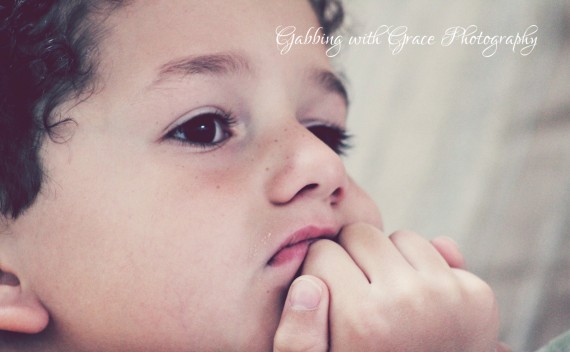[This post is part of the “Non Conventional Places A.P.E. Giftings Show Up” series. Read the rest of the posts here!]
Ever wondered how your spiritual gifts play out in your parenting style? It’s pretty easy to assume the way you parent is due to your wonderful planning combined with the 55 gajillion parenting books you’ve ingested. Ever considered that the healthiest aspects of your parenting style are all bound up with your spiritual gifts? Well, duh. I hadn’t.
Like most areas of my life I hadn’t realized I was “leading” my children out of my spiritual gifts because a) I tend not to notice the things I’m doing well that I haven’t horded enormous effort into and b) the connection between spiritual gifts and parenting styles is talked about so infrequently.
Due to all the duty and responsibility wrapped up in being a parent it can seem daunting right to figure out which is which? But, we are leading our kiddo’s and we may as well do that in an informed way. We need to do that in a way that lovingly invites them to share with us in our work to expand the Kingdom of God. When the hubs & I parent R1 & R2 with these intentions in mind we are shepherding their gifts as well as watching them learn and risk alongside us.
Today I’m kicking off a 4 part series on four non-conventional places A.P.E. gifts show up: in parenting, marriage, blogging & friendships. On our Belief page, we describe the Apostolic gift set as “leading in a sent way” to reach those in the fold or to expand the Kingdom of God where it is not yet. Since I’m a stronger A than P or E I’ll explore how we can apostolically lead in these 4 areas in a sent way with a little P & E thrown in for good measure. (And yes, apostolically is my very own made up word. Can you handle it?)
So. How can we model A.P.E. giftings while shepherding our kiddo’s into their unique gifts and callings?
1. Intentional Invitations
2. Intentional Conversations
I didn’t realize it for a long time, but the more I function in my apostolic calling the more I became aware of my need to expand the Kingdom of God in the day-to-day, seemingly inconsequential aspects of my life. I realized I was seeing things others didn’t. It is out of that awareness that I try to open up those insights to my son. I’ve found that the more intentional I am to have these conversations the more often we could. And like anything else, there’s never enough time to debrief them all!
A few months ago, R1 told a student in his classroom the he could be his best friend only if the friend knew God. Well, he’s certainly not winning the Child Evangelist of the Year Award with that little quip. I could have let that one go, but saw the opportunity for both modeling evangelism, shepherding his behavior AND teaching him to be a relevant evangelist himself. I took a few minutes each day before school to talk to him about other ways he could engage with this friend, alternate ways to word his concern that his friend knew God and a few prayer times for courage to have honest conversations with friends of his who don’t know God. We try to go into a lot of detail in these intentional discussions so that R1 will learn how to be a relevant witness to the Kingdom no matter where he’s at or who he is with.
You can have these intentional conversations about life’s twists-and-turns as a way to show your kids what the Kingdom of God is and isn’t, where truth has been twisted to look like reality and what our role is and isn’t in addressing them.
3. Intentional Observations
For most of us born in the 70’s, the extent of our social justice education was our parents telling us to eat all the food on our plate because there were starving kids in Ethiopia who needed that food. I cannot tell you how badly I felt finishing off my food when Ma could have shipped it to some starving kid who wanted that nasty broccoli. Growing up in inner city Detroit showed me poverty. I lived in it, smelled and tasted the despair of generational poverty. It produced a deep penetrating sense of compassion calcified in my bones. My kids live in…well, a version of suburbia. They have not tasted, smelled or even got a whiff of true poverty.
So. I intentionally keep the faces of poverty always before them. I open up the Voice of the Martyrs Newsletter with them and explain the plight of Christians worldwide. I tell them my stories. We share our World Vision child sponsorship stories. We point out God’s heart for the poor in Scripture. We daily encourage thankfulness for their many, if not obnoxious amounts of accumulated toys. When they are a bit older I will take him to serve food with me at our local Gospel Mission. My intentionality here is to develop in my kiddos compassion and empathy for what breaks the heart of God. Perhaps, when they are older they will understand their responsibility to expand God’s Kingdom through caring for the poor.
There are many different ways you can lead your children directly from your gift set in ways that align with your family’s values. Just like you, I want to lead my kiddo’s in ways that encourage them to go and do likewise.
May they experience the joys and benefits of our intentionality.
What are some of the ways you’ve lead your children as an apostolic, prophet or evangelist? What are some ways you are hoping to grow in using these gifts directly with your kiddo’s?
[This post is part of the “Non Conventional Places A.P.E. Giftings Show Up” series. Read the rest of the posts here!]

Sign up to receive our blog posts via e-mail and get instant access to our APE Library with videos, seminars, leaders notes, and more.



